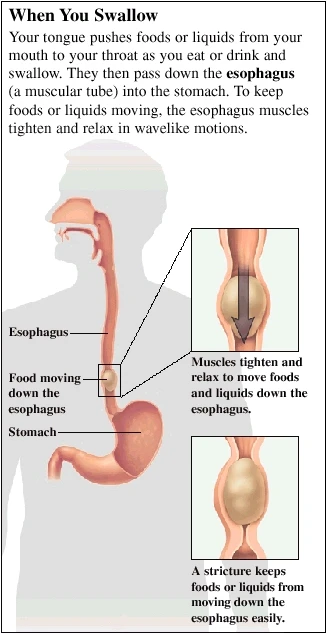
If you have a problem swallowing foods or liquids, you may have dysphagia. This condition has a number of causes. Your doctor can find out what is causing your problem and help relieve your symptoms.
Causes of Dysphagia
With dysphagia, foods or liquids do not easily pass down the esophagus. Often, dysphagia occurs if the esophagus walls thicken, causing a narrowing (stricture) of the passage. Dysphagia can be caused by any of the following:
- A problem in the esophagus, such as an ulcer, a stricture, or cancer
- Muscles in your mouth, throat, or esophagus that don’t work right
- A nerve or brain problem (such as a stroke) that leaves your mouth, tongue, or throat muscles weak or changes how your muscles coordinate
Common Symptoms
If you have dysphagia, you may:
- Feel chest pressure or pain when you swallow
- Choke or cough when swallowing
- Vomit after eating or drinking
- Aspirate (inhale into the lungs) foods or liquids when you swallow
- Have fatigue and weight loss
